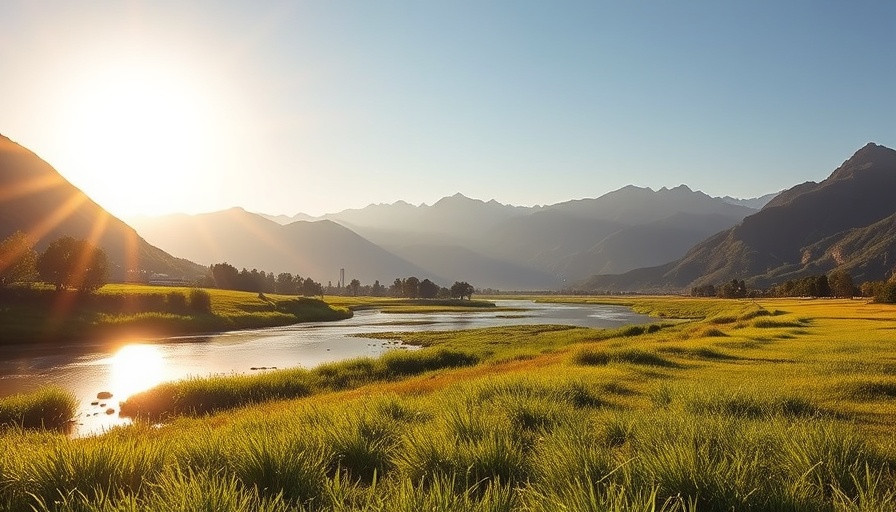
Discover the Hidden Charms of the Cederberg This Winter
For many travelers, the Cederberg Mountains evoke images of sun-drenched hikes and summer adventures. However, as temperatures dip, this stunning region transforms into a serene winter escape filled with breathtaking vistas and peaceful solitude. With fewer crowds and a cooler climate, winter proves to be a hidden gem for those looking to experience the Cederberg's unique allure.
Why Winter Hikes are Unparalleled
The Cederberg's famous sandstone formations, including the awe-inspiring Wolfberg Arch and the unique Maltese Cross, are still vibrant and accessible during winter months. The moderately cool daytime temperatures, typically between 18–22°C, allow for invigorating hikes without the oppressive heat of summer. Morning and evening chill adds a fresh quality to the region's dry air, making the winter hikes not only enjoyable but also truly unique. As you wander these trails, you might find that the captivating landscapes are accentuated by seasonal changes.
Unique Wildlife Encounters
Winter offers a rare opportunity to observe local wildlife. From the agile klipspringer to the majestic Cape zebra, many animals emerge in search of water sources that become more vital during the dry months. Birdwatchers can also take advantage of migratory patterns, making this a prime time for spotting rare avian species. The chance to connect with nature in this manner can be a deeply rewarding experience. Visitors should bring binoculars to appreciate these winter marvels to their fullest.
A Taste of Local Culture
Winter months provide a unique chance to witness local traditions and culture in the Cederberg. Community events during this time often emphasize the region's rich heritage, showcasing local art, music, and cuisines that aren't as visible during the busier summer season. This is the perfect time to indulge in traditional dishes and interact with the local populace, creating a more meaningful connection to the area that goes beyond mere sightseeing.
Where to Stay: Cozy Retreats
When planning your winter getaway, there are several lodges and accommodations that cater to those looking for a cozy retreat after a day of exploration. Places like the Cederberg Heritage Lodge or luxury eco-lodges offer warm fires and spectacular mountain views, ensuring that visitors can relax and unwind in comfort. Such accommodations also often provide insight into sustainable and responsible travel, contributing to programs that protect the local environment.
Planning Your Trip: Travel Tips
For those considering a visit to the Cederberg, planning is essential. It's advisable to pack warm layers since mornings and nights can be significantly colder, and the weather can change unexpectedly. Unlike summer, where many might choose to stay in bustling towns, winter travelers should consider basing themselves in smaller villages to connect more with the tranquil ambiance the season offers. If you’re traveling with family or as part of a group, consider curated itineraries focusing on both adventure and cultural experiences, allowing for a comprehensive exploration of the region.
In summary, winter in the Cederberg is not just about comfort and relaxation but also about deeply engaging with the landscape, local community, and varied wildlife. Whether you are an avid hiker or a cultural enthusiast, this season opens a myriad of enriching experiences. So, grab your winter gear and embark on an unforgettable adventure in one of South Africa's most beautiful regions.
Join the Season of Discovery
The Cederberg is calling! Plan your winter trip now and immerse yourself in its serene beauty. Experience hiking trails, wildlife, and cultural connections that make this season truly special. Create memories that will last a lifetime and discover why winter is, indeed, the best time to visit the Cederberg!
 Add Row
Add Row  Add
Add 




Write A Comment